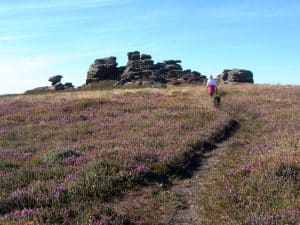Support us from £3/month
We deal with almost 1000 cases a year assisting communities, groups and individuals in protecting their local spaces and paths in all parts of England and Wales. Can you help us by joining as a member?
We have launched a search for common land which must be registered and protected.
The Commons Registration Act 1965 required all commons to be registered but allowed only three years for this to be done. Some commons which were provisionally registered were subsequently struck off on spurious grounds. Now, it is possible, in the ‘pioneer areas’(1) of England and throughout Wales, for anyone to apply to their county or unitary authority (the commons registration authority) to register land which was wrongly struck off, provided it satisfies certain tests to show that it was originally provisionally registered and still is common land.
We are encouraging people to claim their commons.
Says Hugh Craddock, one of our case officers: ‘It is important to register the lost commons because once land is recorded we confirm the right to walk there and there may be new rights to ride too. Because of registration, the land becomes protected from development and enclosure.
‘Registration will also help right some of the wrongs arising from the land being struck off originally. In too many cases, land was removed from the register as a result of cosy deals between landowners and farmers, or because applicants for registration were faced down with threats of costs or court cases. Now we have another, final, opportunity to redress some of the unfairness of those cancellations.
‘Time is limited though—we have only until the end of 2020, barely three years off, to register commons in seven of the nine pioneer areas.
‘We urge people in the English pioneer areas and in Wales to study the commons registers held by their commons registration authority and note any provisional registrations which did not become final. These commons are potentially registerable now—and can give immense public benefit.’
The society is appealing for funds to help with this important work: for instance, it may need to pay for professional advice and assistance to ensure that all missing commons are rescued. To contribute to the appeal please visit the society’s website.
1 The pioneer areas in England are as follows: Blackburn with Darwen, Cornwall, Devon, Herefordshire, Hertfordshire, Kent and Lancashire (closing date 31 December 2020) and Cumbria and North Yorkshire (closing date 15 March 2027).

